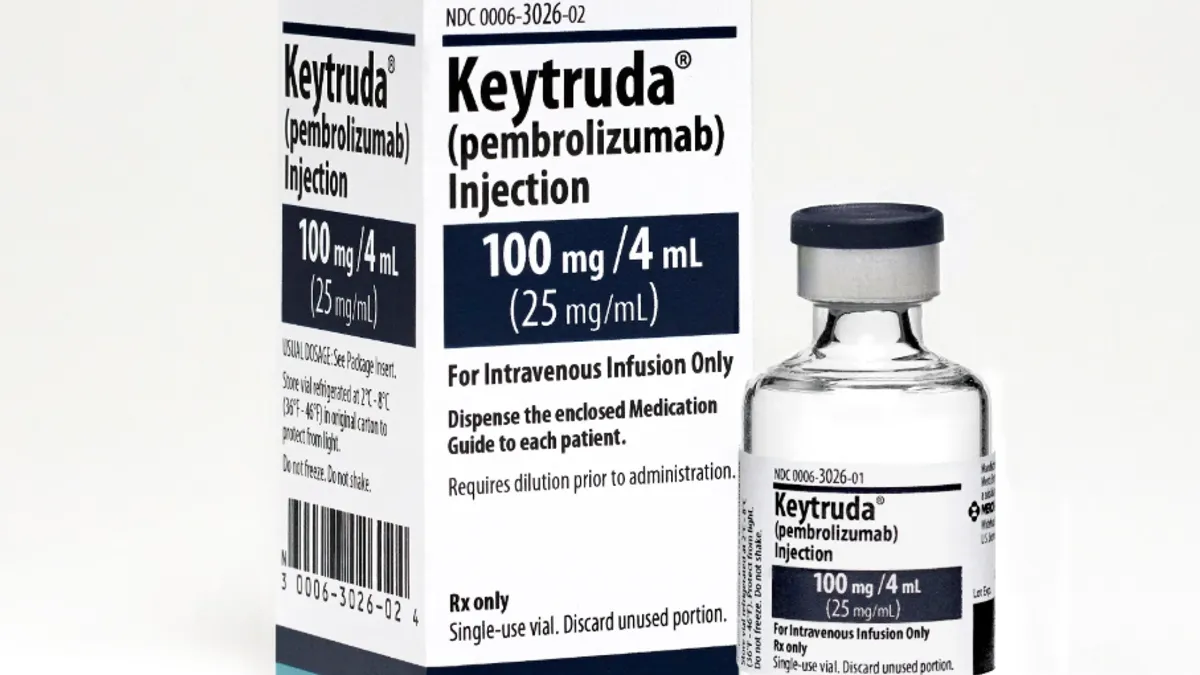We’re only halfway through February, and there’s already optimism that 2024 will bring an upturn for biotech, thanks to buzzy upcoming approval dates and an early crop of successful IPOs that gave the sector its best start since 2021, according to Bloomberg.
The industry is also coming off a year of historic firsts — from a vaccine for RSV and a drug that could slow Alzheimer’s disease, to the first CRISPR-based drug.
Drawing on forecasting reports from Evaluate and Citeline, company news and financial analysis, we’ve compiled a list of four biotechs to watch in 2024.
Alto Neuroscience
The company’s focus: AI-derived biomarkers that develop precision medicines for the brain.
Why we’re watching: The past several months have been going gangbusters for Alto Neuroscience. The California-based company kicked off 2024 by closing an upsized IPO priced at $16 per share and finished the second half of 2023 with positive data in two phase 2 studies in post-traumatic stress disorder and major depressive disorder.
The backstory: In 2022, Alto CEO and co-founder Dr. Amit Etkin told PharmaVoice about the company’s goal to “have the first biomarker driven drug approval in psychiatry.” The fact that it’s using an AI platform to reach that goal makes the company even hotter.
Alto’s biomarker-driven approach to matching patients with treatments scored its third positive phase 2 readout in December with positive data for ALTO-300 for major depressive disorder. Those results showed that significantly more patients with the identified biomarker achieved clinical response from ALTO-300 than patients without the biomarker. The company has initiated a phase 2b study evaluating ALTO-300 in 200 patients with MDD, which is expected to read out in the first half of 2025.
Verona Pharma
The company’s focus: Several chronic respiratory diseases with significant unmet medical needs, including COPD.
Why we’re watching: Verona’s lead candidate ensifentrine could be the first novel mechanism available for the maintenance treatment of COPD in more than a decade and is a “potential blockbuster,” according to Citeline.
The backstory: COPD affects 11.7 million adults in the U.S., making the potential market huge for ensifentrine, which has a PDUFA target date of June 26. The first-in-class drug candidate — it’s a dual inhibitor with both bronchodilator and anti-inflammatory effects — has a good safety profile, demonstrated improvements in lung function and substantially reduced the rate and risk of COPD exacerbations, according to trial data. In addition to COPD, Verona is trialing ensifentrine to treat non-cystic fibrosis bronchiectasis, cystic fibrosis and asthma. In January, Verona entered into a into debt financing facility of up to $400 million with Oxford Finance and Hercules Capital
Karuna Therapeutics
The company’s focus: Mental health conditions including schizophrenia and psychosis in patients with Alzheimer’s.
Why we’re watching: Within a month, Karuna announced two big pieces of news that would have a huge impact on how it performs in 2024. First was that its schizophrenia candidate KarXT has been assigned a PDUFA date of Sept. 26. The second was Bristol Myers Squibb struck a deal to acquire the company for $14 billion.
The backstory: If approved, KarXT would end a decades-long wait for a new schizophrenia treatment. The drug, which has a novel mechanism of action, not only improved schizophrenia symptoms in clinical trials but “was not associated with” the common and bothersome side effects in currently available antipsychotics, including weight gain, sleepiness and movement disorders, Karuna said. The company is also studying KarXT as an adjunctive therapy for schizophrenia and in psychosis in Alzheimer's disease. Both are in phase 3 trials. It also has several other candidates in its clinical and preclinical pipeline.
Madrigal Pharmaceuticals
The company’s focus: Novel therapeutics for nonalcoholic steatohepatitis (NASH).
Why we’re watching: Madrigal has what Citeline calls a “potential blockbuster” on its hands with resmetirom, a first-in-class treatment for NASH, an advanced kind of non-alcoholic fatty liver disease.
The backstory: If approved, resmetirom would become the first therapy OK’d in the U.S. for NASH, which is now the “fastest growing indication for liver transplantation in Western countries.” Not only was resmetirom effective in clinical trials, it was also safe and well tolerated.
With a quickly approaching PDUFA date of March 14, Madrigal has spent the past several months shaking up its leadership team in preparation for resmetirom’s launch. In November, it tapped as its new chief commercial officer Sanofi veteran Carole Huntsman, who worked on the blockbuster launch of Dupixent. It also hired another former Sanofi leader, Bill Sibold, as CEO in September, and has made other significant executive hires since.

















